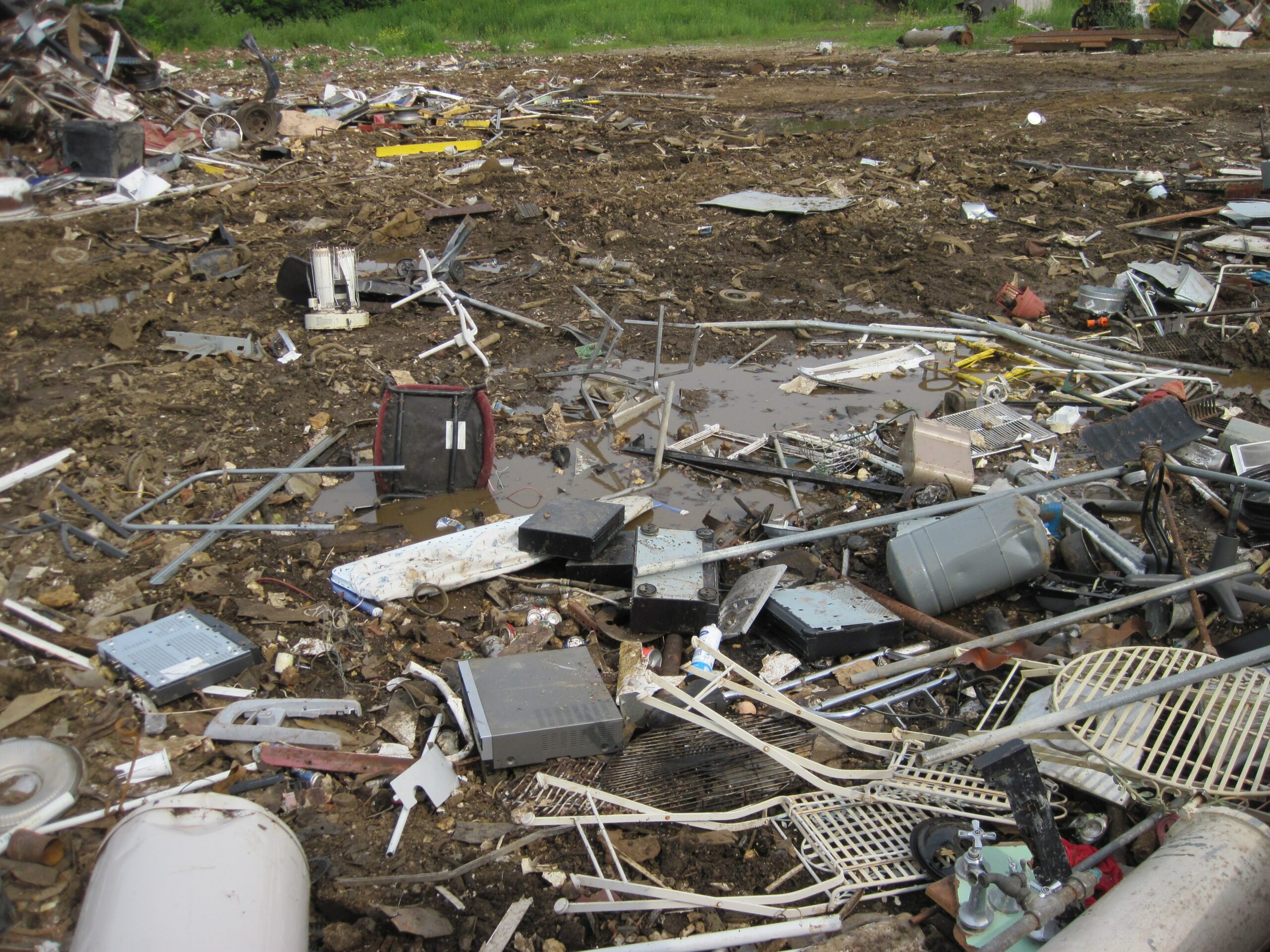The world is in the midst of an electronic waste crisis. With technology advancing rapidly, more and more old electronics are discarded each year. This has led to mountains of electronic waste that often end up in landfills, causing severe environmental damage. To protect our planet, businesses must start properly recycling their old electronics. In this article we will discuss the global need for electronic recycling and highlight some of its benefits.

What Is Electronic Recycling?
The electronic recycling process begins with the collection of old electronics. These can be collected from homes, businesses, and other institutions. Once collected, the electronics are sorted by type and material. Like metals and rare earth minerals, the most valuable materials are extracted for reuse. The remaining materials are recycled into new products or disposed of in an environmentally responsible manner.
Electronic recycling is a crucial part of the global effort to reduce environmental pollution and conserve precious resources. Something very simple that many take for granted can make a real difference in improving the world around us.
Why Is Electronic Recycling Important?
Electronics are among the items that should be recycled by trained professionals. There are two main reasons for this. First, electronic recycling waste helps to conserve limited natural resources. For example, when we recycle the copper from old computers, we can avoid mining new copper ore. This reduces our impact on the environment and preserves resources for future generations.
Second, the proper disposal of electronic waste is crucial for protecting human health. When electronics are disposed of in landfills, they release harmful chemicals into the environment that contaminate soil and water sources. This can lead to serious health problems for all forms of life.
The Negative Effects of Improper Disposal
Improper disposal of electronic waste is a significant problem that needs to be addressed. It damages the environment, but it also causes severe economic damage. Millions of dollars worth of valuable materials are lost every year when electronics are disposed of in landfills. This is a massive waste of resources that could be used to create new products. Furthermore, repurposing these materials greatly reduce the damaging effects on our planet caused by mining for metals.
In addition, the cost of cleaning up environmental contamination caused by improperly disposed of electronic waste can be extremely high. In some cases, it can even exceed the cost of recycling the waste in the first place. Therefore, we must find ways to dispose of electronic waste properly. Otherwise, the adverse effects will continue to mount, causing even more damage to our environment and economy.
The Benefits of Recycling Electronics
Aside from conserving resources and protecting the environment, recycling electronics also offers several other benefits. First, it provides a boon to the economy through job creation in the e-waste recycling industry. Second, scaling back the need to import new electronics from other countries reduces our trade deficit and supports domestic manufacturing.
Finally, recycling electronics helps to reduce greenhouse gas emissions. When we recycle metals and plastics, we avoid processing new materials that require a lot of energy and emit harmful gasses into the atmosphere. In sum, recycling electronics is not only good for the planet but also has several economic and social benefits.
How to Recycle Your Electronics
E-waste includes anything with a circuit board or battery, including but not limited to: computers, laptops, tablets, phones, and small appliances. All of these items can be recycled at a recycling facility. Be sure to check with your local center before you drop off your electronics. You will find that while many specialize in recycling particular items, it is important to find a firm that takes the guesswork out of the process by recycling anything with a plug or battery.
The Future of Electronic Recycling
The future of electronic recycling looks promising. As more and more devices become obsolete, there will be a greater need for recycling facilities that can properly dispose of them. However, if we can increase our recycling rates, we can significantly reduce the amount of electronic waste produced each year.
In addition to recycling facilities, there is also a need for education on recycling electronics. By teaching people about the benefits of recycling, we can help to create a culture of responsibility that will ultimately lead to less electronic waste being produced.
Proper recycling of old electronics is becoming more and more critical as the world becomes increasingly digitized. By taking a few simple steps to recycle your old devices, you can help reduce the environmental impact of electronic waste and keep harmful chemicals out of our landfills and water supplies. For businesses, proper recycling benefits the environment and presents an opportunity to demonstrate social responsibility and boost brand awareness. We anticipate that electronic recycling will become even more critical as new technologies are developed and discarded devices continue to pile up. And with established, dependable companies leading the way, we can assure a better future for businesses, organizations & individuals alike.



